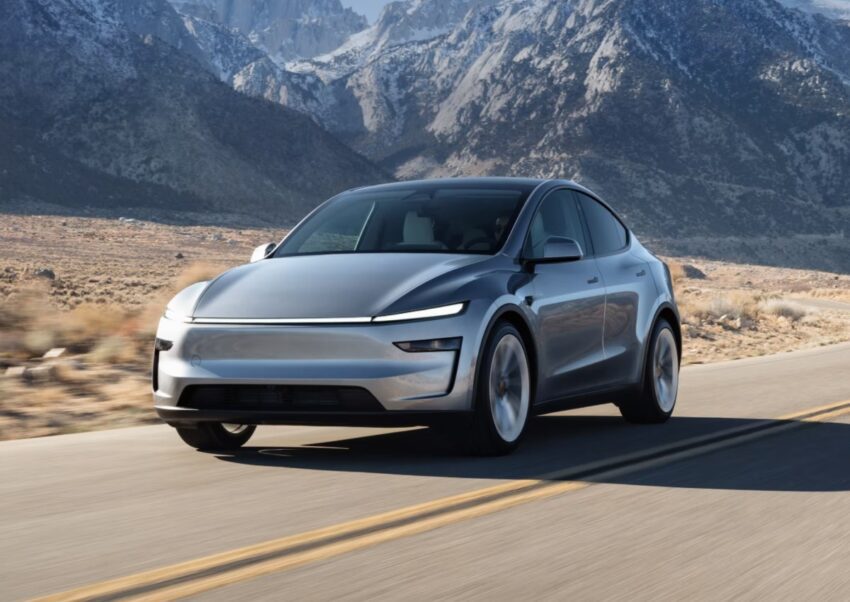
tesla asks epa not to roll back Tesla has formally requested the Environmental Protection Agency (EPA) to maintain stringent emissions regulations, amidst a backdrop of political rhetoric that questions the validity of climate change science.
tesla asks epa not to roll back
Tesla’s Regulatory Position
Tesla’s regulatory policy team is currently engaged in a significant effort to address the fallout from recent comments made by CEO Elon Musk, who has been known for his controversial statements regarding climate change and environmental regulations. Musk’s previous actions, including a substantial $300 million investment aimed at influencing regulatory policies, have created a complex situation for the company. This investment was intended to bolster Tesla’s position within the regulatory landscape, but it has also led to increased scrutiny and criticism from various stakeholders.
Background on Emissions Regulations
Emissions regulations are critical components of environmental policy in the United States. They are designed to limit the amount of greenhouse gases that can be emitted by vehicles and industrial sources. The EPA has historically played a pivotal role in establishing these regulations, which are intended to combat climate change and promote cleaner air quality. However, the regulatory environment has fluctuated significantly over the years, often influenced by the political climate and the prevailing attitudes towards climate science.
Under the Biden administration, there has been a concerted effort to strengthen emissions standards, reversing many of the rollbacks that occurred during the Trump administration. The current standards aim to reduce greenhouse gas emissions from light-duty vehicles by 50% by 2030, a goal that aligns with broader climate objectives. Tesla, as a leading electric vehicle manufacturer, stands to benefit from these regulations, as they create a more favorable market for electric vehicles (EVs).
The Political Landscape
Recent remarks by former President Donald Trump have reignited debates surrounding climate change and environmental regulations. Trump referred to climate change as a “con job” during a recent rally, a statement that has drawn both support and condemnation from various factions. His comments reflect a broader skepticism towards climate science that has been prevalent among certain political groups, particularly those aligned with fossil fuel interests.
Trump’s administration had previously rolled back numerous environmental regulations, which has had lasting implications for the automotive industry and the broader climate agenda. His rhetoric continues to resonate with a segment of the population that views climate change as exaggerated or politically motivated. This environment poses challenges for companies like Tesla, which rely on a stable regulatory framework to promote the adoption of electric vehicles.
Tesla’s Response to Political Rhetoric
In light of Trump’s comments and the potential for regulatory rollbacks, Tesla’s regulatory policy team is taking proactive steps to engage with the EPA. The company has submitted formal requests urging the agency to uphold existing emissions standards and resist any attempts to weaken them. This move is not merely a defensive strategy; it is also a reflection of Tesla’s commitment to sustainability and its role as a leader in the electric vehicle market.
Tesla’s position is particularly significant given its status as a pioneer in the EV sector. The company has built its brand around the idea of sustainability and reducing carbon footprints. By advocating for stringent emissions regulations, Tesla aims to reinforce its image as a responsible corporate citizen while also protecting its competitive advantage in a market that is increasingly focused on environmental responsibility.
Stakeholder Reactions
The reactions to Tesla’s request have been varied, reflecting the polarized nature of the climate change debate. Environmental advocacy groups have largely praised Tesla’s stance, viewing it as a necessary step in the fight against climate change. Organizations such as the Sierra Club and Greenpeace have expressed support for the company’s efforts to maintain robust emissions standards, arguing that such regulations are essential for reducing greenhouse gas emissions and promoting public health.
Conversely, critics of emissions regulations, including some industry groups and political figures aligned with Trump, have condemned Tesla’s position. They argue that stringent regulations could stifle innovation and economic growth, particularly in the automotive sector. These critics often advocate for a more market-driven approach to environmental policy, suggesting that technological advancements should dictate emissions standards rather than government mandates.
The Implications for the Automotive Industry
The outcome of this regulatory debate will have significant implications for the automotive industry as a whole. If the EPA decides to maintain or strengthen emissions regulations, it could accelerate the transition to electric vehicles and other low-emission technologies. This would benefit companies like Tesla, which are already positioned to thrive in a more regulated environment.
On the other hand, if the EPA rolls back emissions standards, it could create a more favorable landscape for traditional automakers that rely on internal combustion engines. This scenario could slow the momentum of electric vehicle adoption and hinder progress towards national and global climate goals. The automotive industry is at a critical juncture, and the decisions made by regulatory bodies will shape its trajectory for years to come.
The Broader Context of Climate Change Policy
Tesla’s advocacy for stringent emissions regulations is part of a larger narrative surrounding climate change policy in the United States. The Biden administration has made combating climate change a central pillar of its agenda, with ambitious goals to reduce greenhouse gas emissions and transition to renewable energy sources. This commitment has been met with both support and resistance, reflecting the deep divisions in American politics regarding environmental issues.
In recent years, there has been a growing recognition of the urgent need to address climate change. Scientific consensus indicates that human activities, particularly the burning of fossil fuels, are driving global warming and its associated impacts. Extreme weather events, rising sea levels, and shifting ecosystems are just a few of the consequences that have prompted calls for immediate action.
The Role of Technology in Climate Solutions
Technology plays a crucial role in addressing climate change, and companies like Tesla are at the forefront of this effort. The development of electric vehicles, renewable energy solutions, and energy storage technologies are all essential components of a sustainable future. By advocating for strong emissions regulations, Tesla is not only protecting its business interests but also promoting the adoption of technologies that can help mitigate climate change.
Moreover, the push for emissions regulations aligns with broader trends in consumer preferences. As public awareness of climate issues grows, consumers are increasingly seeking out environmentally friendly products. This shift in consumer behavior presents opportunities for companies that prioritize sustainability, making it imperative for businesses to adapt to changing market dynamics.
Conclusion
Tesla’s request to the EPA to uphold emissions regulations comes at a critical time in the ongoing debate over climate change and environmental policy. The company’s efforts to navigate the complexities of regulatory frameworks, combined with the political landscape shaped by figures like Donald Trump, underscore the challenges and opportunities facing the automotive industry. As the conversation around climate change continues to evolve, Tesla’s actions will likely influence not only its own future but also the broader trajectory of the electric vehicle market and environmental policy in the United States.
Source: Original report
Was this helpful?
Last Modified: September 26, 2025 at 12:45 am
1 views















